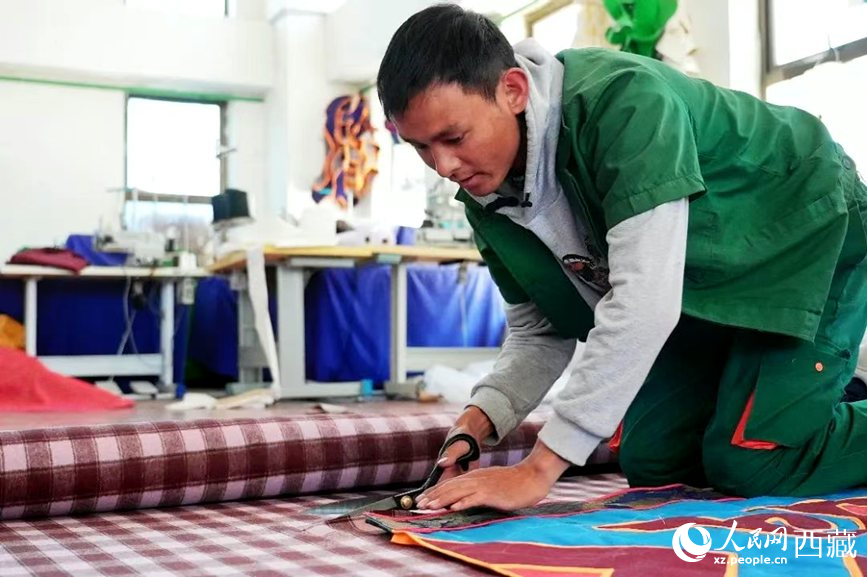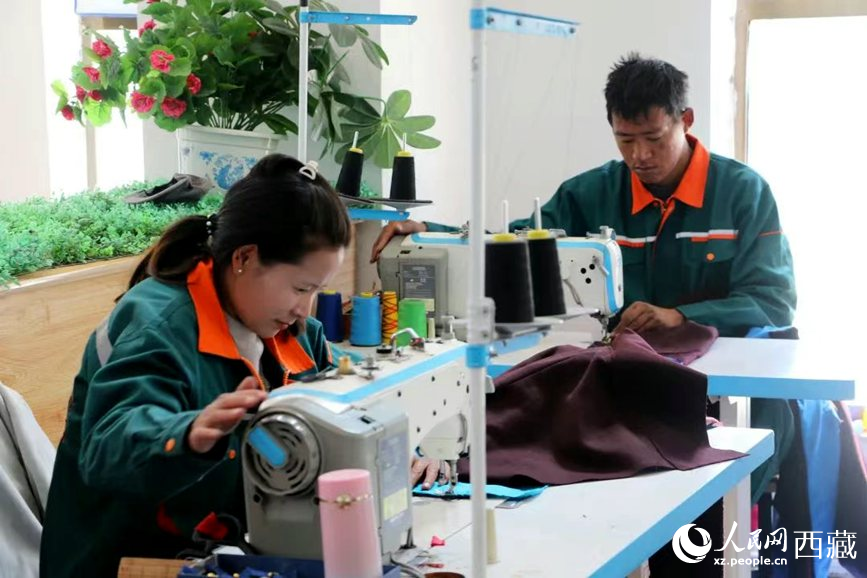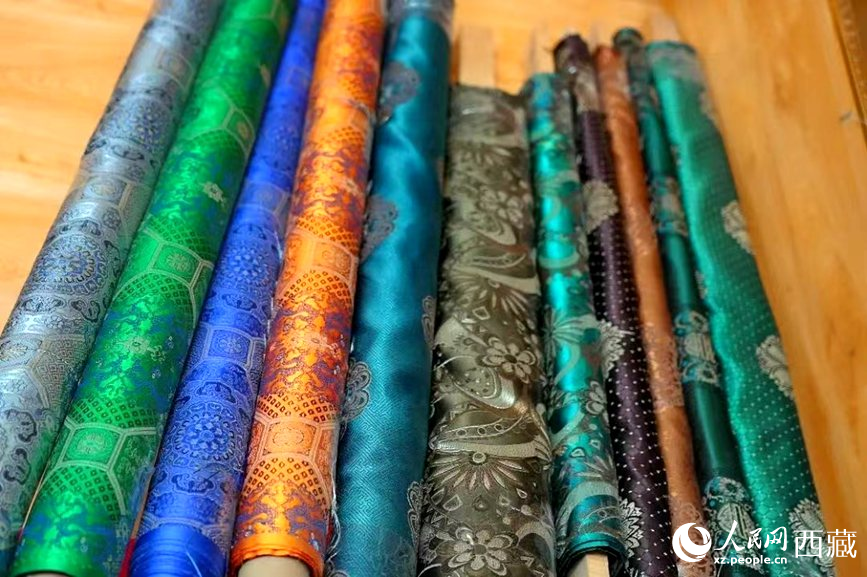




- BRNN
- BRI News
- BRNN News
- Database
Official Documents Polices and Regulations
Inter-government Documents International Cooperation BRI Countries
Business Guide Economic Data BRI Data
Trade
Investment Projects Latest projects
Cases - Content Pool

Dondrup Tsering makes a traditional Tibetan door curtain at an employment and entrepreneurship base in Zhanang county, Shannan city, southwest China's Xizang Autonomous Region. The base is dedicated to offering employment opportunities and entrepreneurship support to people with disabilities. (Photo/Tsering Norbu)
Pasang Dawa, a tailor with a physical disability, carefully guided two pieces of dark blue fabric under a needle in a clothing processing workshop named "Sunshine workshop" in Zhanang county, Shannan city, southwest China's Xizang Autonomous Region.
Earning a monthly salary of 4,500 yuan ($616.44), the 38-year-old is able to support his family and has become a role model among young people in his village.
Before taking on the job, he once felt his life had lost direction—"like a kite with a broken string," as he put it.
"Now I can even teach new workers to use the overlock machines," he said, proudly showing off a certificate of honor recognizing him as a "key employee."
The "Sunshine workshop," operated by a local clothing manufacturer dedicated to poverty alleviation and disability support, is part of an employment and entrepreneurship base covering an area of nearly 5,000 square meters.
Established in 2018 with government subsidies and enterprise-raised funds, the base has served as a "dream factory" that transforms the lives of people with disabilities.
Over the past seven years, the factory has employed a total of 67 people, including 38 individuals with disabilities who are currently weaving a brighter future with their own hands.
"By combining employment opportunities with support for entrepreneurship, we've helped nine people with disabilities and 10 formerly impoverished villagers start their own businesses," said Lhachung, an executive of the base.

Employees sew Tibetan garments at an employment and entrepreneurship base in Zhanang county, Shannan city, southwest China's Xizang Autonomous Region. The base is dedicated to offering employment opportunities and entrepreneurship support to people with disabilities. (Photo/Tsering Norbu)
Padma Drolkar, a female employee whose husband works in the same factory, enjoys a monthly income of over 6,000 yuan.
"I used to feel like a burden to my family," she recalled. "Now, life is sweeter than yak butter tea."
Drolma, one of the beneficiaries, used to be a member of a registered poor household in the locality. Now that she runs a traditional ethnic clothing store with support from the base, she can put her younger sister through college and has become an inspiration to her fellow villagers.
According to Lhachung, the company's annual revenue has grown from 180,000 yuan in 2018 to 485,600 yuan in 2024, with an average yearly growth rate of 21.6 percent. Its products now reach beyond Shannan to prefecture-level cities including Nagqu and Ngari in the region.
"We plan to expand to 80 positions within three years, further increasing the proportion of employees with disabilities," Lhachung said as he gently folded a freshly ironed, vibrantly colored Bangdian, a type of colorful, finely striped woolen ornament traditionally worn around the waist by Tibetan women.

Lhachung, an executive of an employment and entrepreneurship base in Zhanang county, Shannan city, southwest China's Xizang Autonomous Region, organizes clothes in a store at the base. (Photo/Tsering Norbu)
The company has brought in professional instructors to train its staff and organized skills competitions to cultivate more highly skilled workers. It has also supported employees with disabilities in sharpening their skills—all to help employees better adapt to market demands, Lhachung noted.
In the base's showroom, school uniforms, traditional Tibetan outfits, and thick winter quilts lined the left wall, while plaques and certificates inscribed with honorary titles such as "outstanding disability support entity" and "national-level vocational training base for people with disabilities"—adorned the right.
Amidst the rhythmic sounds of sewing machines, Lhachung and his team discussed new designs for new orders.
Sunlight streamed through the windows, illuminating the colorful Bangdian under the workers' hands and the hopeful smiles on their faces—each stitch sewing a brighter future.

Photo shows fabric samples used for making traditional Tibetan clothing at an employment and entrepreneurship base in Zhanang county, Shannan city, southwest China's Xizang Autonomous Region. The base is dedicated to offering employment opportunities and entrepreneurship support to people with disabilities. (Photo/Tsering Norbu)

Tel:86-10-65363107, 86-10-65368220, 86-10-65363106